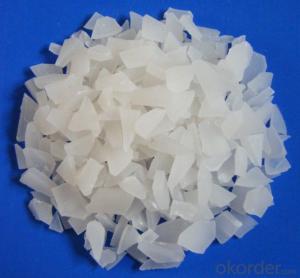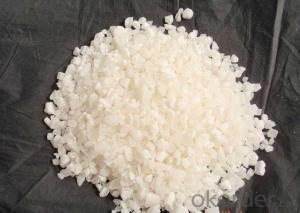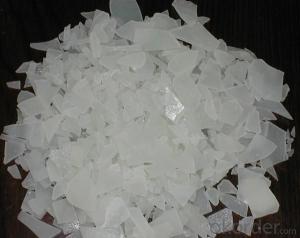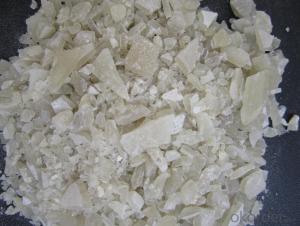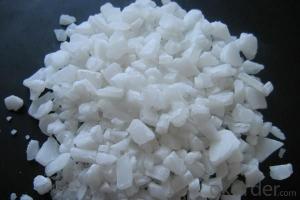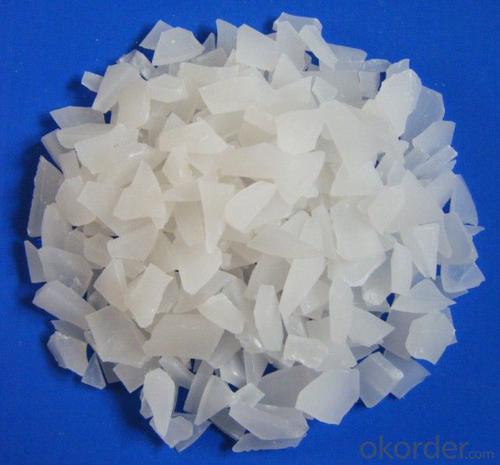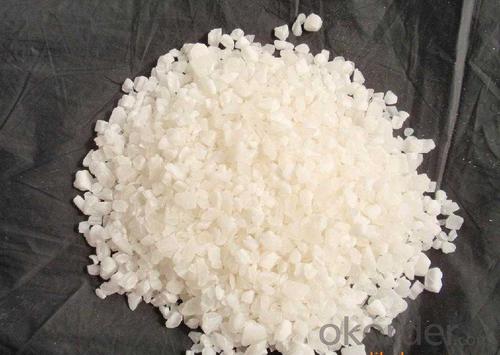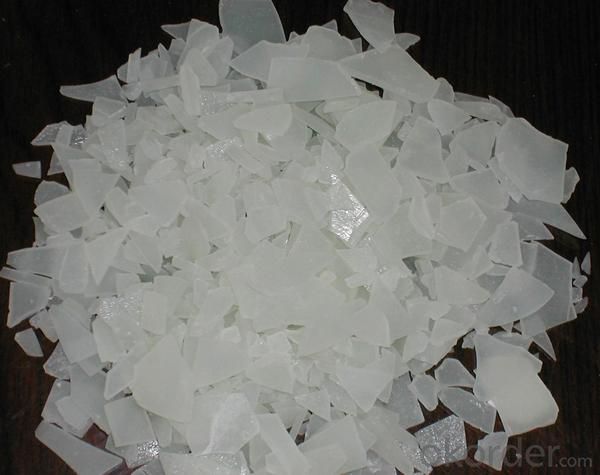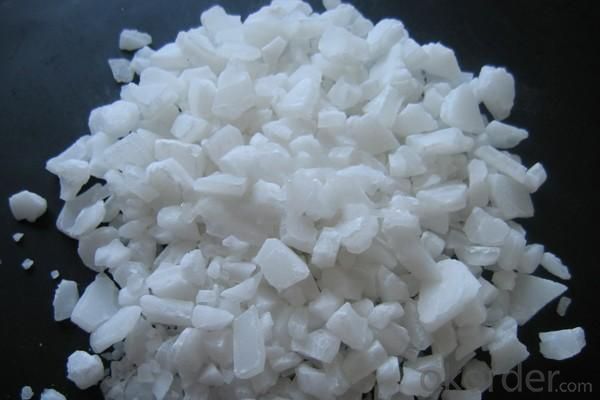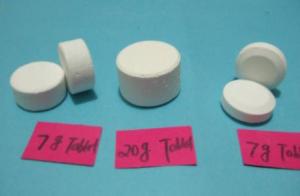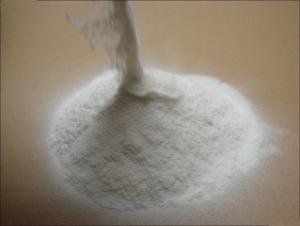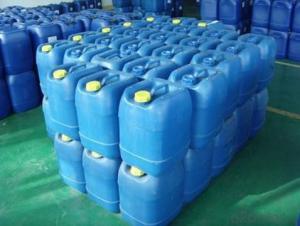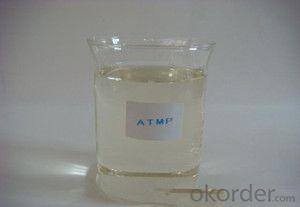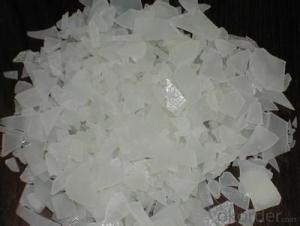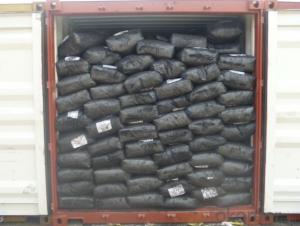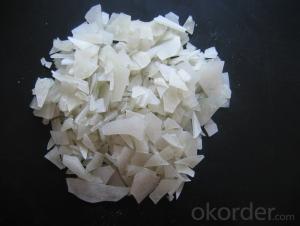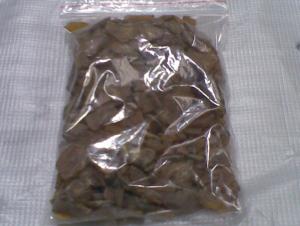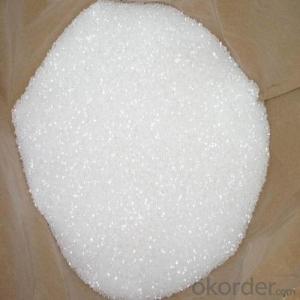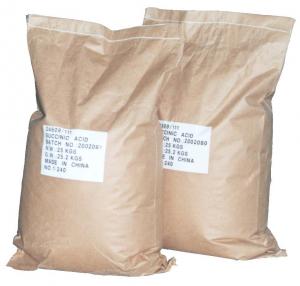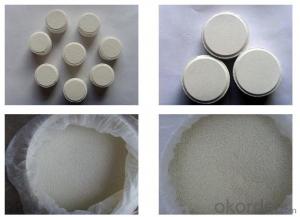Aluminum Sulfate No Fe Qualifed Grade in China
- Loading Port:
- Qingdao
- Payment Terms:
- TT OR LC
- Min Order Qty:
- 25 m.t.
- Supply Capability:
- 12000 m.t./month
OKorder Service Pledge
OKorder Financial Service
You Might Also Like
1. Chemical and Physical Properties:
Product name: Aluminium Sulphate or Aluminum Sulfate
Shape: Flakes or Granular or Powder.
EINECS NO.:233-135-0
CAS No.: 10043-01-3
HS.Code: 28332200
Molecular Formula: Al2(SO4)3
Appearance:It is white or grey flake,particle or massive crystallization.
Apt to cake after moisture absorption when laid in air for a long time.A little green because of Fe2+ ,yellow when Fe2+ is oxided to Fe3+.Soluble in water easily,and water solution is acid.
2. Specification:
Standard: HG/T 2225-2001 and HG/T 2227-2004
Items | Specifications | |||
I Type:Low Ferrous/Low Iron | II Type:Non-Ferrous/Iron-free | |||
First Class | Qualified | First Class | Qualified | |
Al2O3 % ≥ | 15.8 | 15.6 | 17 | 16 |
Ferrous(Fe )% ≤ | 0.5 | 0.7 | 0.005 | 0.01 |
Water Insolube % ≤ | 0.1 | 0.15 | 0.1 | 0.15 |
PH (1% aqueous solution) ≥ | 3.0 | 3.0 | 3.0 | 3.0 |
Arsenic(As) %≤ | 0.0005 | 0.0005 | ||
Heavy metal (Pb) %≤ | 0.002 | 0.002 | ||
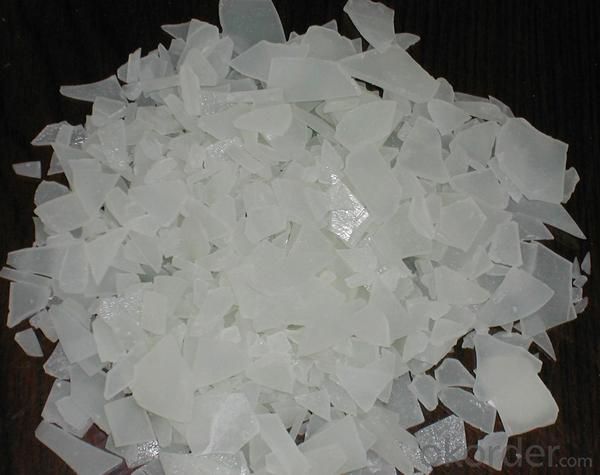
3.Applications:
Water effluent treatment system
It's used for purification of drinking water and wastewater treatment by settling of impurities by
means of precipitation and flocculation.
Paper Industry
It helps in sizing of paper at neutral and alkaline pH, thus improving paper quality (reducing spots
and holes and improving sheet formation and strength) and sizing efficiency.
Textile Industry
It is used for color fixing in Naphthol based dyes for cotton fabric.
Other Uses
Leather tanning, lubricating compositions, fire retardants; decolorizing agent in petroleum, deodorizer; food additive; firming agent; dyeing mordant; foaming agent in firefighting foams; fireproofing cloth; catalyst; pH control; waterproofing concrete; aluminum compounds, zeolites etc.
4. Package:
Packaging Detail: PP/PE 50kg/bag;25kg/bag;Jumbo bag or according to customers' requirements.
20-25MT will be loaded in per 20'FCL container.
5. Attention and Storage:
The product is liable to absorb moisture and clot due to long-term exposure, so shady, cool and ventilated environment is needed.
- Q: On the issue of chemical balance and catalyst
- The catalyst also changes the forward and reverse reaction rate.
- Q: Hydrogen and oxygen in the role of the catalyst can do the chemical formula of aviation fuel?
- Do not be irresponsible, rocket fuel is hydrogen peroxide. H2 + O2 = H2O2 (catalyst)
- Q: The catalyst before and after the reaction of the quality and nature of the same, does it mean that a little catalyst can be all the substrate reaction? Such as: one gram of MnO2 can reflect the infinite H2O2?
- There are positive catalyst and anti-catalyst, as well as the amount of catalyst is also related to the rate, not the more the better
- Q: Chemistry teaching and learning a bit difficult, thank you
- Palladium Pd, platinum Pt as a catalyst
- Q: how could scientists know the exact catalyst for every reactions??? THANX sooo much
- Believe me, nema, there's no way that we chemists know the best catalyst for every reaction. That would be simply impossible. However, from the type of reaction, the reactants, products, reaction conditions, solvents, etc. and from one's experience and the literature (papers and patents) one can get a good idea for most reactions of the type of catalyst that has worked for similar systems. One then starts off with a catalyst from the literature and modifies or changes it if improvement is needed based on chemical principles that one learns. There are also some theoretical calculations that can be made. Sometimes they work and sometimes they don't :) If it is an industrially important process like the Haber process for making ammonia from nitrogen gas and hydrogen gas, there may be thousands of catalysts which have been tried and evaluated. New minor improvements are being made every day. When a company does find a very good catalyst for an important reaction, often they keep it a trade secret. The good catalyst can make a huge difference in how commercially successful a particular process is. That's a large part of what chemical engineers do. You may never know if you have the best catalyst. The most you can hope for is one that is good enough. So it's a few parts personal knowledge, a few parts literature, a couple of parts theory, a lot of experimentation and often, more than not, a little luck. :)
- Q: The future direction of employment how, in what kind of units to do what work, how the closure rate? The
- Generally in the chemical plant to do engineering design engineers, the past few years, science and engineering graduates generally do not worry about work.
- Q: What is the difference between an enzyme catalyst in a living body and a catalyst in chemistry?
- Enzyme has a high catalytic efficiency (high efficiency) Generally speaking, the reaction rate of the alcohol catalyzed reaction rate is 106-1013 times higher than that catalyzed by the chemical catalyst
- Q: Can the catalyst be a reactant in chemistry?
- In general, a catalyst is a substance that participates in the intermediate process of chemical reaction and selectively changes the rate of chemical reaction, and its quantity and chemical properties remain substantially constant before and after the reaction, and the catalyst is usually accelerated to Reaction as soon as possible to achieve the role of chemical balance called catalytic role.
- Q: i keep messing up on those 2 simple things haha i would apprecaite some help.
- A catalyst is a substance that affects the rate of a reaction. It may participate, but cannot be consumed in the reaction. For example, KMnO4 catalyzes the breakdown of H2O2 into H2O and O2. In the end, as much KMnO4 exists as did in the beginning. An enzyme is a biochemical reagent that allows an organism to convert a compound into other compounds. This is part of metabolic processes. For example, maltose (a sugar composed of a chain of two glucose molecules) can be broken down into glucose by the maltase enzyme. Unlike a catalyst, enzymes may or may not be consumed/altered in the metabolic processes.
- Q: Why does the CuO catalyze the reaction rate faster and faster when catalyzing the decomposition of hydrogen peroxide or tell me how to make the catalyst catalyst faster
- CuO exothermates when catalyzing the decomposition of hydrogen peroxide, so the reaction becomes faster.
Send your message to us
Aluminum Sulfate No Fe Qualifed Grade in China
- Loading Port:
- Qingdao
- Payment Terms:
- TT OR LC
- Min Order Qty:
- 25 m.t.
- Supply Capability:
- 12000 m.t./month
OKorder Service Pledge
OKorder Financial Service
Similar products
Hot products
Hot Searches
